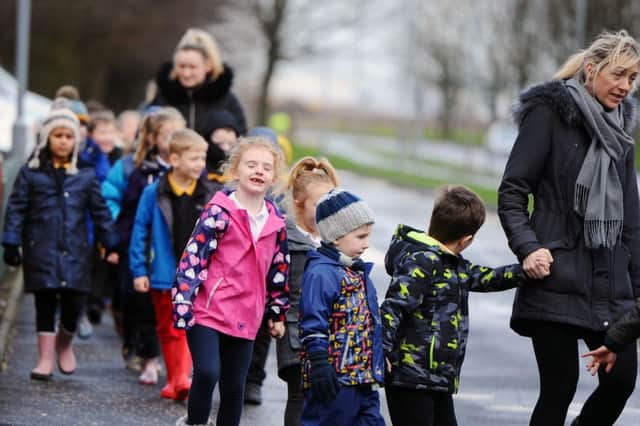FMQs: Nicola Sturgeon challenged over loss of nursery teachers


The First Minister was challenged by Scottish Liberal Democrat leader Willie Rennie over the decision by Edinburgh City Council to no longer have nursery teachers run early years learning in council nurseries.
His concerns were later underlined by one of the Scottish Government's international education advisers stressed it was vital to have highly trained educators in nurseries.
Advertisement
Hide AdAdvertisement
Hide AdAt First Minister's Questions, Mr Rennie asked about the quality of early years education as the government seeks to expand the free hours children can receive at local authority nurseries, from 600 to 1140 hours from August this year.
He said that Alison Murphy of the Educational Institute for Scotland, had described the cuts to nursery teachers in Edinburgh "as the worst example of a short term cut with devastating long term impacts."
Mr Rennie added: "We know nursery teachers raise the quality, the government's independent workforce review told us that. They help give children the best start in life and close the yawning inequality gap.
"But it's not just in Edinburgh - 40 per cent of nursery teachers across Scotland have been chopped. What we now find is that if you have the best qualification as a teacher you become too expensive to keep. What is the First Minister going to do about this terrible mistake on her big project before it's too late?"
"This government is presiding over possibly the biggest expansion of early years workforce that we have seen in the lifetime of this Parliament. Since 2017 we've created over 2000 additional HNC places, over 800 graduate level manager places, we've increased the number of qualified staff available, we're creating just under 2000 additional college and university places, the uptake of early learning and childcare modern apprenticeships increased by 24 per cent on the previous year and we've invested in the BA in childcare practice to upskill the whole workforce.
"The fact is we're doubling childcare provision and seeing the employment of thousands more in the sector - it's a good news story."
However, one of the members of the government's International Council of Education Advisers, later added to the pressure to retain teachers in nurseries.
Professor Pasi Sahlberg, a Finnish educator who works in the University of New South Wales, said the Finnish system was often held up as an example of best practice in early childhood education and care, and the direction had been "towards requiring early childhood teachers and educators to hold advanced academic degrees, just like primary teachers".
Advertisement
Hide AdAdvertisement
Hide AdHe said: "Every group of children in early childcare must have at least one university level educator or teacher so there's a pedagogical understanding and someone is trained well enough to understand how the dynamics in a group of children work and how to work with a group of children that brings the best outcome.
However his colleague Professor Alma Harris of the University of Swansea, said the Council believed the government's investment in early years provision was "laudable, and a major platform for a return on investment in the future."
She added: "In time it will be the envy of other systems. It's about a strong signal about the importance of early child education in preparation for schooling and it's a very complex stage of education and all the evidence would say it's the most important as that's where children start to diverge and where equity begins to play a part."
